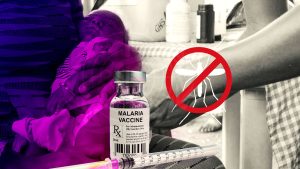Uganda is among the twelve countries across different regions of Africa set to receive 18 million doses of the first-ever malaria vaccine over the next two years. The first doses of the vaccine are anticipated to arrive in countries during the last quarter of 2023, with governments beginning to distribute them by the start of 2024.
According to a joint statement released by the World Health Organisation (WHO), UNICEF, and GAVI on July 5th, the rollout is a critical step forward in the fight against one of the leading causes of death on the continent.
The malaria vaccine, according to Dr. Kate O’Brien, WHO’s director of Immunisation, Vaccines, and Biologicals, is a breakthrough in improving child health and survival, and families and communities need it for their children.
She added that the first malaria vaccine doses are allocated to children at the highest risk of malaria-related death.
“The malaria vaccine is a breakthrough to improve child health and child survival; and families and communities, rightly, want this vaccine for their children. This first allocation of malaria vaccine doses is prioritised for children at the highest risk of dying of malaria. The high demand for the vaccine and the strong reach of childhood immunisation will increase equity in access to malaria prevention and save many young lives. We will work tirelessly to increase supply until all children at risk have access,” she said.
Ephrem T. Lemango, the Associate Director of Immunisation at UNICEF, said that nearly every minute, a child under 5 years old dies of malaria, but the rollout will give children, especially in Africa, a better chance at surviving.
Thabani Maphosa, the Managing Director of Country Programmes Delivery at Gavi, the Vaccine Alliance, said that the vaccine has the potential to fight against malaria and prevent tens of thousands of future deaths.
“This vaccine has the potential to be very impactful in the fight against malaria, and when broadly deployed alongside other interventions, it can prevent tens of thousands of future deaths every year.”
“While we work with manufacturers to help ramp up supply, we need to make sure the doses that we do have are used as effectively as possible, which means applying all the learnings from our pilot programmes as we broaden out to a new total of 12 countries,” Maphosa stated.
In WHO’s 2021 report, Africa accounts for 95% of global malaria cases and 96% of deaths. Malaria remains one of Africa’s deadliest diseases, killing nearly 500,000 children under the age of 5.
However, according to WHO, the malaria (RTS,S/AS01) vaccine has already been administered to more than 1.7 million children in Ghana, Kenya, and Malawi since 2019 and has been shown to be safe and effective, resulting in both a substantial reduction in severe malaria and a fall in child deaths.

